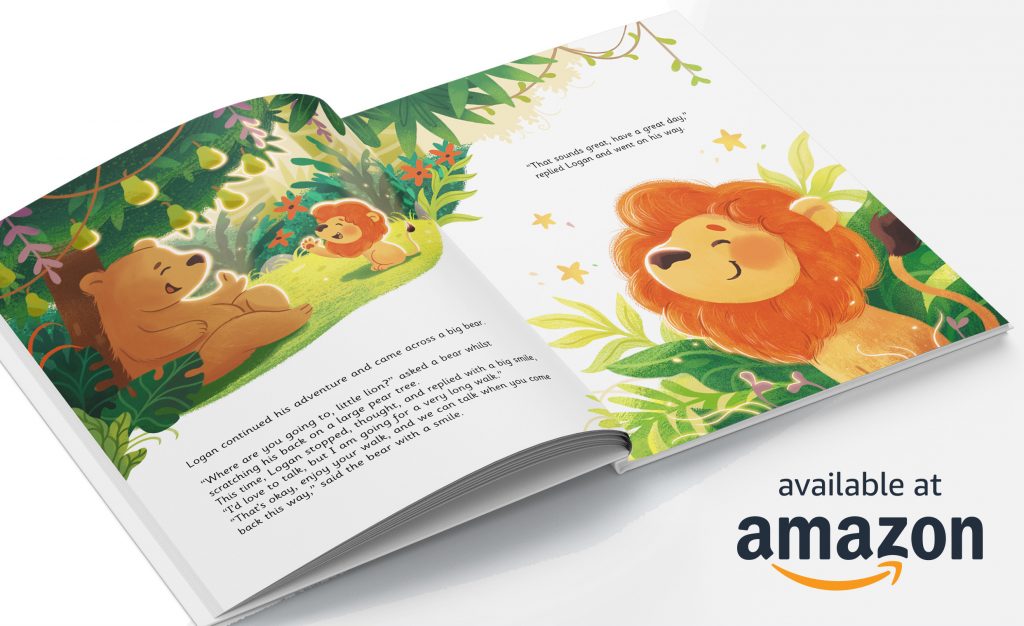
In the fascinating journey of child development, one aspect that is often overlooked is the profound impact of positive self talk. The way children perceive and speak to themselves can shape their beliefs, behavior, and overall well-being.
At the core of our mental well-being lies self talk, which plays a pivotal role in higher cognitive processes such as reasoning, problem-solving, planning, attention, and motivation.
The Science Behind Self Talk
Numerous studies have highlighted the favorable outcomes associated with the utilization of positive self-talk. Positive self talk has been found to have stress-reducing effects, contribute to increased well-being, enhance academic performance, and foster receptiveness to behavioral changes.
The scientific basis underlying the efficacy of positive self talk lies within the intricate neural pathways of the brain. When thoughts are formed, neurons transmit electrical signals, fortifying their interconnections. Regular engagement in positive self talk establishes new neural pathways, effectively disrupting negative thought patterns. Over time, these reconfigured cognitive processes become more deeply ingrained, exerting influence over one’s subsequent behaviors.
Self Talk & Children
Positive self-talk is vital for children’s performance in challenging situations. Research shows that children with positive self talk have higher self-esteem and fewer negative thoughts. Encouraging positive self talk empowers children, boosting their confidence and reducing anxiety. It equips them with a powerful tool for building self-confidence, managing adversity, and embracing resilience. By nurturing positive self-talk, children unlock their potential, thriving in various aspects of their lives.
Enhancing Self-Confidence:
Positive self talk plays a vital role in bolstering a child’s self-confidence. Numerous studies have demonstrated that children who engage in positive self talk exhibit higher levels of self-esteem and self-efficacy. By using phrases like “I can do this” or “I am capable,” children develop a belief in their abilities and become more willing to take on challenges.
Improving Resilience:
Resilience, the ability to bounce back from setbacks, is crucial for children’s emotional well-being. Positive self talk acts as a powerful tool in building resilience. By employing phrases such as “I can learn from mistakes” or “I am strong,” children develop a resilient mindset, enabling them to navigate adversity with greater ease. Scientific studies have shown that children with resilient attitudes tend to have better mental health outcomes and higher academic achievement.
Fostering a Growth Mindset:
A growth mindset, the belief that abilities and intelligence can be developed through effort and practice, is fundamental to children’s motivation and success. Positive self talk is closely linked to fostering a growth mindset. By using phrases like “I can improve with practice” or “I enjoy challenges,” children embrace a belief in their potential for growth. Children with a growth mindset are more likely to embrace learning opportunities, persist in the face of difficulties.
Managing Negative Emotions:
Children are not immune to negative emotions such as anxiety, fear, or self-doubt. However, positive self talk can serve as a valuable tool for managing and overcoming these emotions. When children engage in positive self talk during challenging situations, they can experience a reduction in anxiety levels and an increase in emotional resilience. By using phrases like “I can handle this” or “I am brave,” children can reframe their perception of difficult circumstances and approach them with a calmer and more positive mindset.
Encouraging Healthy Risk-Taking:
Positive self talk can encourage children to embrace healthy risk-taking and step out of their comfort zones. By using phrases like “I am willing to try new things” or “I can handle uncertainty,” children develop a sense of adventure and openness to new experiences. Research suggests that children who engage in positive self talk, they can increase the likelihood of willingly exploring new opportunities, discovering their passions, and develop a sense of self-discovery.
Promoting Social Skills and Empathy:
Effective communication and empathy are essential skills for healthy social interactions. Positive self talk can also play a role in nurturing these skills in children. By incorporating phrases like “I am kind” or “I am a good friend,” children develop a positive self-concept that extends to their interactions with others.
Converting the Negative into the Positive!
We’ve all heard others or ourselves say something like “I’m never going to be able to do that”, “I’m so unlucky” etc. Well, children do as we do, not necessarily as we say, as we all know so well! So we need to be extremely aware of our own self talk, especially around children.
We can help teach children to become more aware of their self talk, and that any negative self talk statements, such as “I cannot do” can be replaced by something positive, like “I will do my best”. Or “I don’t like the way I look”, to “I love myself just the way I am”. “I’m not strong”, to “I am strong”.
We can teach our children about firstly becoming aware, and then secondly about thought interruption and to overlay the statement with the positive. Say that your child is beginning a negative statement or has just finished saying one, you could help them become aware of this and choose a word like “CHANGE” to interrupt the thought pattern and then overlay it with a positive one. Here’s an example:
Child: “I’m not that strong!”
Mum/Child: “Change!”
Child: “I am strong”
Repetition is key to lasting change!
Praise, Praise and Praise!
This becomes even more powerful when you strengthen these positive self talk statements with praise for something they’ve achieved, no matter how small. Whenever a child achieves something (even if it’s something small), take a moment to celebrate their success. Offer words of encouragement and praise their efforts.
Example: They’ve helped you bring in your shopping from the car and one of the bags was a large bag but they managed to help, praise them for it and let them know how strong they are and repeat the self talk statement with them “I AM STRONG”. They will then start to associate the positive statement with an actual real life example!
Positive Self Talk Games & Activities
Here are some games and activities that you can implement to help your children to introduce or enhance their positive self talk:
- Positive Storytelling: Engage children in a storytelling session where they create narratives featuring characters who use positive self talk to overcome challenges. Encourage them to come up with empowering phrases and dialogue for their characters, highlighting the importance of positive thinking and resilience.
- Positive Journaling: Give each child a journal or notebook and encourage them to write down positive affirmations, achievements, and moments of gratitude regularly. This activity helps children focus on positive aspects of their lives, fostering a positive mindset and encouraging self-reflection.
- Role-Playing: Set up scenarios where children can practice positive self talk in challenging situations. For example, pretend to be a student struggling with a difficult math problem or a friend feeling nervous about speaking in front of a group. Encourage the children to use positive self talk to support and motivate themselves and each other through the scenario.
- Compliment Chain: Have children sit in a circle and provide each child with a strip of paper. Each child writes a positive compliment about another child on their strip of paper, folds it, and passes it to the right. Keep passing the compliments until everyone has received one from each participant. This activity promotes positive self talk and reinforces kindness and appreciation among children.
Remember to adapt these games and activities to suit the age and developmental level of the children. By incorporating these fun and interactive experiences, you can effectively teach children about the power of positive self talk while fostering a positive and empowering environment.
Bonus: I Am Amazing Collage
An ‘I Am Amazing Collage’ is a great way to foster a sense of pride and reinforce positive self talk. Here’s how you can create an ‘I Am Amazing Collage’:
Materials Needed:
Large poster board or chart paper
Markers, coloured pencils, or crayons
Stickers or decorative elements (magazines, print outs)
Sticky notes or small cards
Design the Collage
Instructions:
Ask them to cut out pictures, words, and phrases that represent their strengths, interests, and positive qualities. They can then arrange and glue these items onto the paper to create a personalized “I Am Amazing” collage, reinforcing positive self talk and self-appreciation.
You can also help them to write the headings for each column, such as “Academic Achievements,” “Personal Achievements,” “Kindness Acts,” or any other categories you want to include. Decorate the chart with colourful markers, stickers, or other decorative elements to make it visually appealing.
You can even break down the headings into areas that they’re / you’re aware of self talk and then show examples that counter that self talk/belief. For example, say your child is continually expressing “I am not strong!”, together you can add the heading “I AM STRONG!” and around it have examples of when you child showed strength!
Whenever a child adds an accomplishment to the collage, take a moment to celebrate their success. Offer words of encouragement and praise their efforts.
Encourage children to engage in positive self talk by reflecting on their achievements. Have them share what they learned, how they overcame challenges, or what they are proud of about their accomplishment.
Summary
The power of positive self talk in children’s development cannot be underestimated. Through its influence on self-confidence, resilience, growth mindset, emotional management, risk-taking, and social skills, positive





